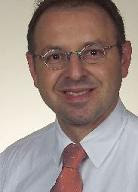In Cologne in the Museum Ludwig I gave in the afternoon a talk on "Illusions 2.0 - embedded interactive media" at the Forum Mediendesign. The talk focused on the new qualities of magical experiences we will be able to create with pervasive computing technologies in the future and linked this to Alan Kay's notion of user illusion and metaphors. I looked at trends that are ingredience for creating Illusions 2.0 - in particular ubiquitous communication and display, constant tracking and logging, and the decrease of value of traditional content (text, audio, video, software, tv, statistical data). I highlighted one development that have already happened and has impacted our lives with the following statement. The question "If I only would know when the others come and where they are now…" was common to people born before 1970 but is completely alien to people born after 2000. Mobile communication has changed this and tracking will add more change over the next years.

Based on some examples from recent popular fiction (Harry Potter) I showed that things that we have considered magical are becoming rapidly community products (e.g. marauders map). Spinning this idea forward I asked how far are we with regard to other human dreams such as looking into the future or never forgetting anything we have seen or heard. And the answer in short is: we are close ;-) for more see the slides of my talk on Illusion 2.0. There is an upcoming paper we wrote for IEEE Multimedia Magazine on this topic - will tell as soon as it is published ;-)

In the morning I had some time for sightseeing and Vivien and I went to the chocolate museum. The museum is brilliant and I learned how the hollow chocolate santas are made :-) In the top floor they have a table top projection for a quiz - it is very well done (as the whole museum) but the technology did not work on the table close to the window. As we know from our experience if you have sun light your camera-projector systems may have trouble ;-)
PS: it was interesting that the whole organization was done by students as a course in project management - and they did it really well.

1 comment:
kanchipuram sarees
kanchipuram silk sarees
kanchipuram silk sarees wholesalers
Herbal Powder
golu dolls
Post a Comment